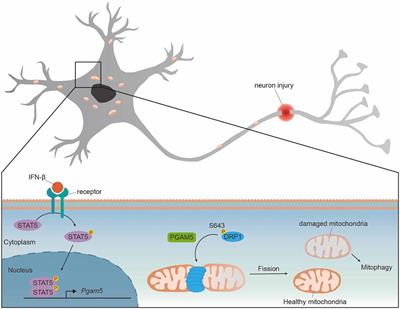EDITORIAL
Published on 01 Aug 2022
Editorial: Mitochondrial therapy in neurological diseases

doi 10.3389/fnmol.2022.988792
- 1,335 views
11k
Total downloads
54k
Total views and downloads
EDITORIAL
Published on 01 Aug 2022

SYSTEMATIC REVIEW
Published on 24 Dec 2021

REVIEW
Published on 09 Dec 2021

MINI REVIEW
Published on 13 Oct 2021

MINI REVIEW
Published on 23 Sep 2021

MINI REVIEW
Published on 05 Aug 2021

ORIGINAL RESEARCH
Published on 07 Jul 2021
